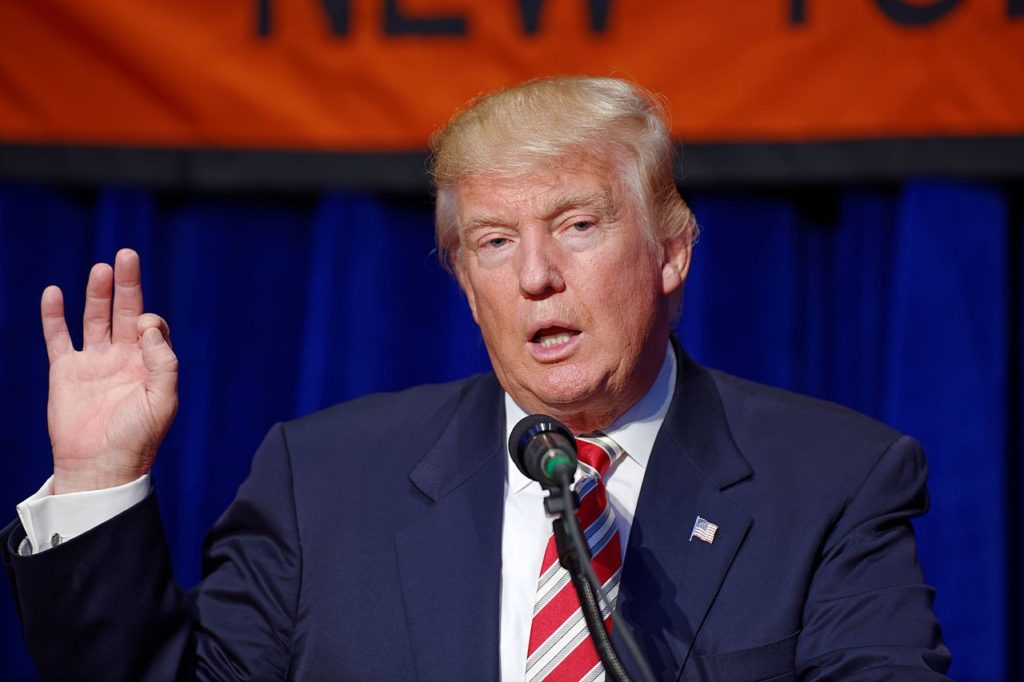
Last week, CNN reported that President Donald Trump wants to investigate effects of import subsidization and dumping on the U.S. trade deficit — and is considering an increase in tariffs, if a negative effect is found. Trump expresses no qualms about tariffs; during his campaign, he proposed a 45 percent tariff on China and a 35 percent tariff on Mexico.
Trump’s protectionism taps into the misconception that foreign businesses’ successes tain our American identity. We want jobs here, and not just for practical reasons. Something deeper than unemployment nags us when an American factory dissolves because of Chinese imports or Mexican labor.
So we call it patriotism when we vote for politicians who promise to keep jobs here. Protectionist policies, we’re told, will sustain American employment and expand American businesses. They reaffirm the American identity.
But has safety at the cost of diversity and freedom and choice ever been our identity? In the end, is protection worth the price — or even effective?
Despite their patriotic allure, protectionist policies are harmful because they don’t work, and they distort our quest for justice and human flourishing.
A tariff is a tax a domestic government mandates on foreign goods. To stay profitable, companies pass tax burdens onto consumers by raising prices — ultimately, the cost falls on you. And you can’t avoid the problem by switching to domestic goods, because domestic producers raise their prices if foreign producers’ prices go up.
Foreign producers aren’t happy, either. They lose business because consumers aren’t buying their expensive goods. They might pull their goods from America completely, which leaves consumers with fewer — and possibly lower-quality ones — options in the store aisle.
In response, some foreign countries levy tariffs on our goods. This hurts American producers whose goods face tariffs in other countries. To cover the cost, they raise prices and probably lose business from abroad. As American companies lose business, they have to cut back on workers, which means Americans lose jobs.
A recent study by the National Foundation for American Policy estimated that proposed tariffs on China, Japan, and Mexico would cost each American household, on average, $11,100 over five years. Worse, the lowest tax bracket faces the worst consequences, losing 18 percent of their mean after-tax income.
Without protectionism, some workers may lose their jobs, but other opportunities for employment will arise. The New York Times recently reported on three Indiana brothers living that reality: One lost his job when his factory closed due to competition from China; another works for a local Toyota plant that exports around the world; and the third, a teacher, relies on lower costs of imported goods to make a decent livelihood.
Foreign countries get our money, but that means they can buy our goods or invest in our banks. Capital inflow balances out trade deficits — meaning that, if we import more than we export, foreign countries are also investing more money in our banks.
Also, the poor benefit from trade. A 2000 study by the World Trade Organization found poor economies develop faster with more open trade. The Economist reported that the poor in countries such as China, South Korea, and Ireland benefited greatly since free trade opened up after World War II. When the poor in foreign countries trade their goods for American capital, the Heritage Foundation pointed out, their industries develop more quickly.
Without protectionism, we can enter the world, do good for it, and benefit in return.
Openness to change defines the American identity. We stick to our morals and principles, of course, but those principles include cultivating freedom and welcoming other peoples and cultures, generosity with our prosperity, and a willingness to accept what other nations do better than we can. We take risks to create a better, more free, more just world.
Mankind wants more than safety. We want freedom and choice and opportunity. We can keep living and loving and doing what we do best, and we have faith that things will be all right, even in the fleeting shadow of unemployment. We don’t want protectionism. We don’t need it. It protects us too much — protects us from who we are.
Ms. Ault is a sophomore studying economics, German, and journalism.

